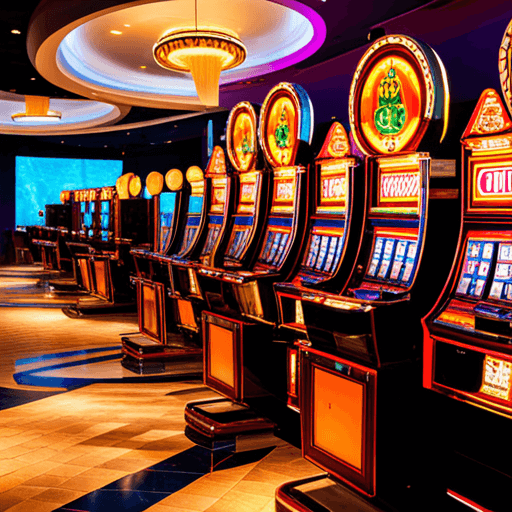Gambling games have fascinated participants for centuries, immersing them in a thrilling realm of fortune, skill, and uncertainty. From the classic allure of card games such as poker and blackjack to the vibrant illuminations and whirling reels of slot machines, these games represent a significant part of the entertainment landscape across the globe. However, with increasing popularity comes the necessity for control, to ensure that play is fair, protecting consumers, and preserving the integrity of the gaming industry.
Many regions and regions have implemented multiple rules and regulations to regulate casino games, which reflect their distinct cultural perspectives towards wagering. Some countries embrace a thriving casino industry, others enforce strict limitations or outright bans. This article will examine how these rules are constructed, the role of licensing authorities, and the different strategies taken globally to establish a safe and enjoyable environment for players.
International Regulatory Systems
Oversight of casino games varies significantly across the globe, demonstrating cultural attitudes towards gambling and state policies. In various countries, governments establish strict permit processes that operators must comply with, ensuring that the games are just and that revenues are properly taxed. This oversight typically involves regulatory agencies tasked with monitoring gaming activities, conducting audits, and enforcing compliance with national laws.
In certain regions, such as the UK and Malta, regulatory systems are particularly rigorous, with comprehensive measures in place to protect players, prevent money laundering, and ensure responsible gambling. Licensing authorities in these regions focus on establishing an environment that encourages clarity and accountability among casino operators, building trust with players while supporting the financial benefits of a regulated gaming industry.
Conversely, in areas where gambling is limited or outright prohibited, illegal casino activities can flourish in unregulated environments, resulting in higher risks for players. This creates a dual difficulty for regulatory bodies: to fight illegal gambling operations while also addressing the needs and concerns of consumers who may look for lawful alternatives. As the international market for casino games continues to develop, the push for consistent regulatory standards may become increasingly essential to protect players and promote a fair gaming landscape.
Authorization and Compliance
Authorization is a key aspect of the regulation of casino games worldwide. Regulators in multiple jurisdictions grant licenses to businesses who meet particular criteria designed to ensure equity, security, and accountable gaming. These criteria often include background checks on the individuals owning the casino, fiscal reviews, and the presentation of technical standards for the games provided. Without a valid license, operators cannot legally provide their services, making licensing a essential component in maintaining the credibility of the industry.
Compliance with local laws and regulations is critical for all approved operators of casino games. Casinos must comply to rigorous guidelines that cover aspects such as game integrity, payout percentages, and advertising standards. 9bettt.com Regulators periodically audit casino operations to ensure regular ‘compliance. Failure to comply with these regulations can result in harsh penalties, including monetary penalties, suspension, or revocation of the operating license. This oversight helps safeguard players and maintain public trust in gambling establishments.
Additionally, different countries have varied licensing frameworks that demonstrate their legal approach to the gambling industry. For example, while some nations have open regulations allowing many operators, others impose tight limits, often providing licenses to only a select number. This diversity in legal frameworks can lead to obstacles for businesses who wish to operate across multiple jurisdictions, as they must steer through different compliance requirements and laws. Understanding these details is vital for any operator looking to thrive in the global casino market.
Effect of Regulation on the Industry
Regulation plays a key role in shaping the framework of casino games worldwide. It sets criteria that ensure games are equitable, safe, and open. By enforcing licensing regulations, authorities can create a system that fosters trust among gamblers. This confidence is essential for the overall stability of the sector, as players are increasingly encouraged to interact with gambling establishments that show compliance with regulatory requirements.
On the practical side, regulations often lead to higher overhead for casino operators. Compliance with industry specifications requires spending in tools, training, and the employment of experienced personnel to supervise gambling activities. While this can be a strain, it can also improve the standard of service and game selections, resulting in a more immersive experience for gamblers. Ultimately, these improved requirements can invite a wider customer base and foster lasting trust.
Additionally, the influence of regulation extends past just compliance; it affects advancement within the industry. As regulations change, providers are driven to adapt and introduce new gaming styles and advancements that comply with rules. This push for innovation can lead to broader and captivating game choices for players while also confirming that the games offered are responsibly managed. Thus, the regulation of casino games not only improves security and fairness but also drives the industry ahead through ongoing creativity.


